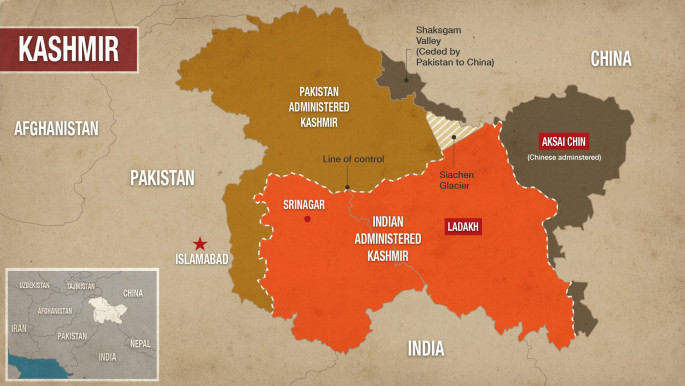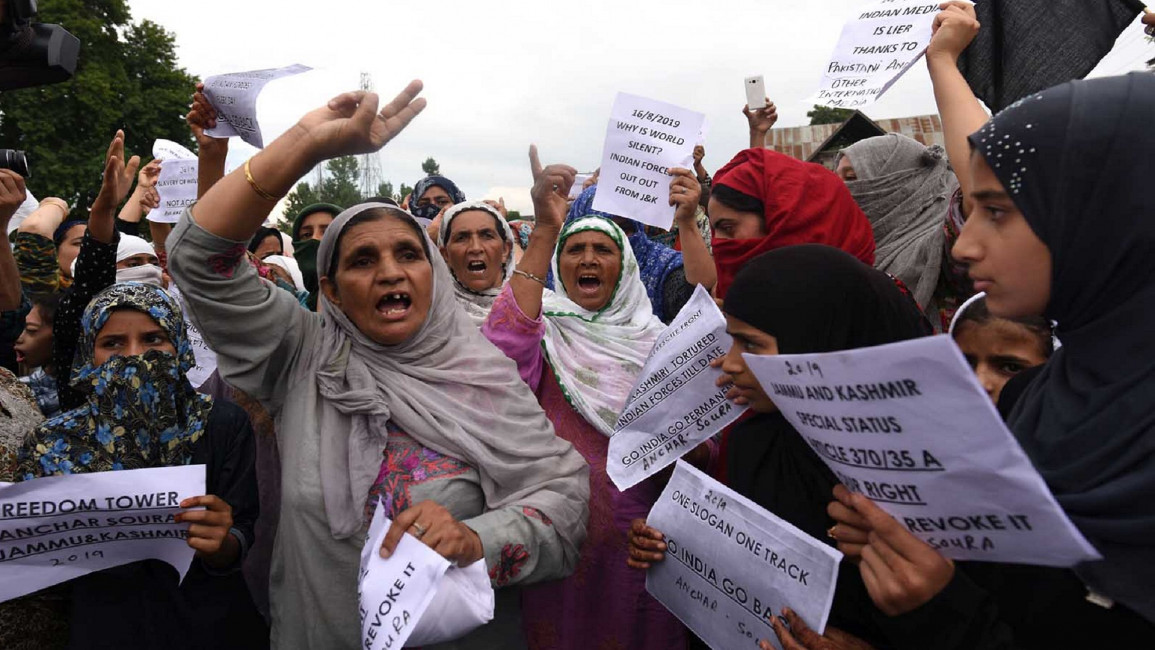Six people injured in clashes between Kashmiri protesters, Indian security forces
Indian security forces injured at least six people on Saturday in Srinagar, the largest city in the Indian-controlled part of Kashmir, as protests broke out against the Indian government’s revocation of the region’s autonomy.
In New York, the UN Security Council held its first session in nearly 50 years on Kashmir. For decades, India has refused to abide by a 1948 UN Security Council resolution saying that Kashmir’s inhabitants should determine the territory’s fate through a plebiscite.
Eyewitnesses and police officials said that clashes began on Friday evening. Some Srinagar residents said that they had been verbally abused or physically assaulted and that Indian security forces had caused damage as they raided homes following previous stone-throwing incidents.
Indian officials refused to comment on the number of raids, arrests, and injuries.
Six men from Srinagar's Soura and Chadoora areas were injured by pellets fired by security forces.
They were being treated Saturday afternoon at the Sri Maharaja Hari Singh Hospital, two hospital officials said on condition of anonymity.
A spokesman said the hospital was "collecting information on the injuries".
Among the victims was Gulam Rasool, the owner of a shawl shop. His son, Naseer Ahmed, said he was stepping out of his home when paramilitary troops hit him with at least 20 pellets.
Rasool lay staring at the ceiling in a blue 'kurta' shirt stained with blood.
In the Bemina area of Srinagar, at least a dozen witnesses said police and paramilitary officials had raided several homes on Friday afternoon, picking up at least six men and damaging houses with stones and rods.
In another part of Srinagar, Shahida, 25, said her husband Riyaz Ahmad Dar had been having tea on the first floor of their home when at least 15 police and paramilitary troops forced their way in, smashing windows and arresting her husband and his cousin.
In tears, she said her two-month-old son had been sleeping on the carpeted floor close to the window. "I grabbed him, but they beat my husband ruthlessly," she said. "They sell crockery items - they are not stone pelters."
Eighteen-year-old Simran Shahnawaz had a bandage on her toe where she said a police officer had hit her with an iron rod.
Her family pointed to broken cupboards and a shattered LCD screen, which they said had been smashed in the raid. "I can´t even tell you the kind of insults they hurled at us," Shahnawaz said.
Following a 12-day Internet and communications blackout, telephone landlines were restored in parts of Srinagar and a Kashmir state government spokesman said that most landline telephone exchanges in the disputed Muslim-majority region would start working by Sunday evening.
However, the Internet and mobile phones remain blocked and most urban areas remain under lockdown. More than 500 political and community leaders remain in detention, with some being transported to prisons outside Kashmir.
Since 1989, India has been fighting an insurgency in the part of Kashmir it controls. More than 50,000 people have been killed as a result. Analysts say the decision to revoke autonomy will cause further alienation and more conflict in the region.
The revocation of autonomy will allow non-residents to buy property in Kashmir and end the reservation of state government jobs for local residents, in a move that many fear may be a precursor to demographic change.




